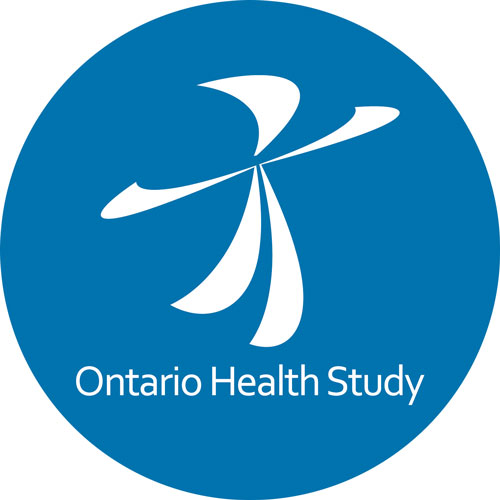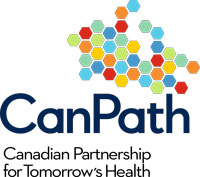Receive the latest news, event invites, funding opportunities and more from the Ontario Institute for Cancer Research.

The Ontario Health Study is research, powered by volunteers.
The Ontario Health Study (OHS) follows the health and wellbeing of 225,000 Ontarians to help understand how people’s lifestyle, genetics and the environment they live in affect their health and their risk of chronic diseases. The data OHS collects from participants are made available to approved researchers studying diseases like cancer, cardiovascular disease, asthma and diabetes. The OHS is one of seven cohorts of the Canadian Partnership for Tomorrow’s Health (CanPath), a pan-Canadian study with over 330,000 participants to date.
Chronic diseases are the number one cause of death in Canada, and about one in two Canadians will develop cancer in their lifetime. By following Ontarians’ health over the course of decades, the OHS allows researchers to explore how various complex factors influence health and chronic diseases, and make discoveries that improve how these diseases are prevented and treated.
Ontario Health Study participants consent to answering multiple questionnaires over the years about their family history, current health status, lifestyle, and the environment they live in. Some participants volunteer their blood and urine samples and undergo other physical assessments. Most OHS participants consented to having their data linked with administrative health records, such as the Ontario Cancer Registry, which helps provide a fuller picture of their health over time.
The unique insights the OHS can provide about how people’s lifestyle, the environment they live in, and their genetics may impact chronic disease as they age are why the Study has been called a ‘population laboratory’.
OHS data is made more powerful thanks to data linkage; data from most participants (83%) has been linked with other data securely collected by other data custodians, such as the Ontario Cancer Registry. Data linkage opportunities ICES, Ontario Health, and CANUE are available to approved researchers.
Researchers who use OHS data in their studies also agree to return any new data they generate back to the OHS. This means the Study becomes an ever-richer research resource over time.
The power and potential of a long-term health study and research platform like the OHS is simply huge. Its large size makes the Study relatively unique in Ontario for being able to help assess disease risks on a population scale.
OHS Dataset and biobank: What’s available
Non-fasting blood samples were collected from more than 40,000 participants. A subset of this group, approximately 12,600 and 12,800 participants respectively, provided urine samples and physical measures. Blood spot samples were collected from nearly 10,000 participants at up to three timepoints for the OHS and CanPath COVID-19 Antibody Study.
OHS Dataset and BioBank
Learn more about the data and samples available to researchers here.
 The OHS is one of seven participating cohorts of the Canadian Partnership for Tomorrow’s Health (CanPath), alongside the B.C. Generations Project, Alberta’s Tomorrow Project, Healthy Future Sask, the Manitoba Tomorrow Project, CARTaGENE in Quebec and the Atlantic PATH. CanPath is studying the biology, behaviours and environments of Canadians to learn more about the causes of chronic disease and cancer for a healthier Canada and world. To date, CanPath has collected data from over 330,000 Canadians. CanPath’s data and biosamples are available to researchers through the CanPath Portal.
The OHS is one of seven participating cohorts of the Canadian Partnership for Tomorrow’s Health (CanPath), alongside the B.C. Generations Project, Alberta’s Tomorrow Project, Healthy Future Sask, the Manitoba Tomorrow Project, CARTaGENE in Quebec and the Atlantic PATH. CanPath is studying the biology, behaviours and environments of Canadians to learn more about the causes of chronic disease and cancer for a healthier Canada and world. To date, CanPath has collected data from over 330,000 Canadians. CanPath’s data and biosamples are available to researchers through the CanPath Portal.
Researchers are invited to apply to access Ontario Health Study data and biosamples to find ways to better treat and prevent cancer and chronic disease
Please visit OICR’s Collaborative Research Resources directory for more opportunities to collaborate.